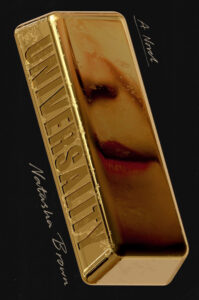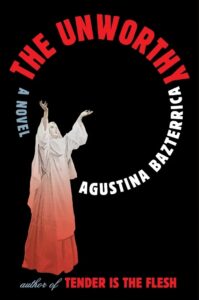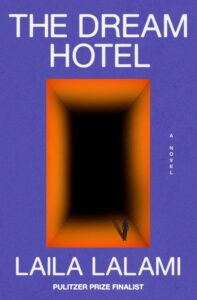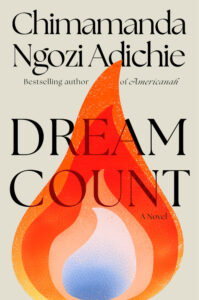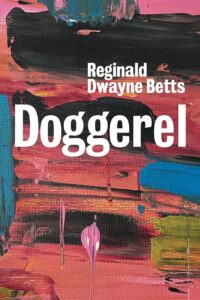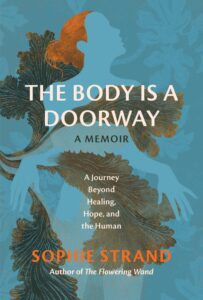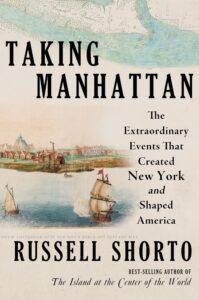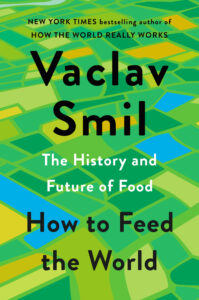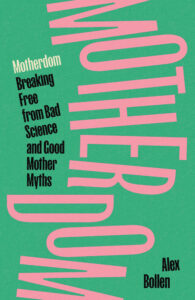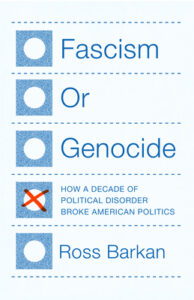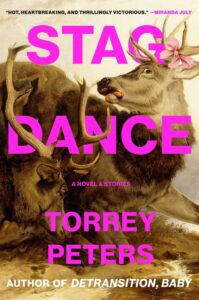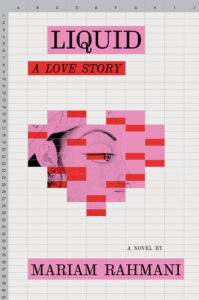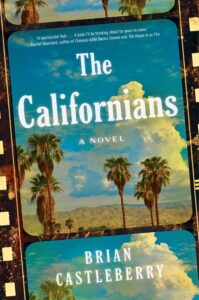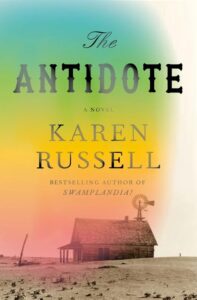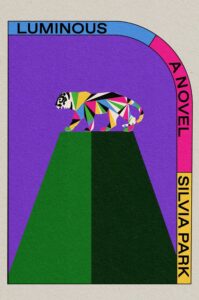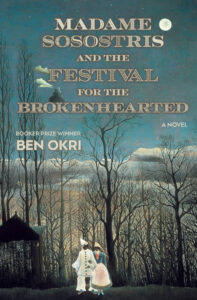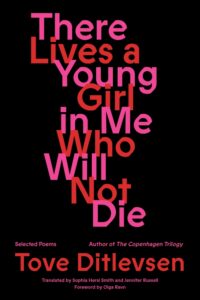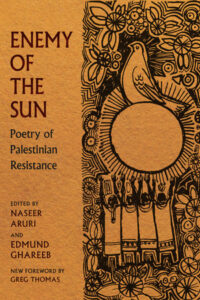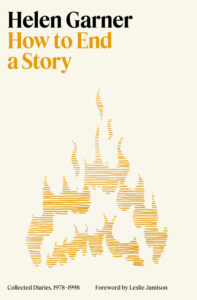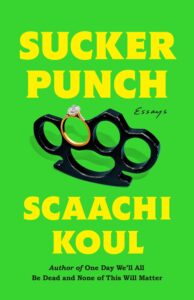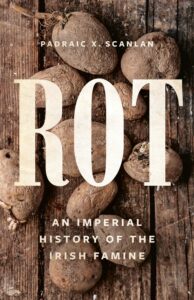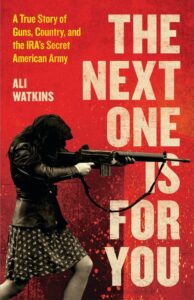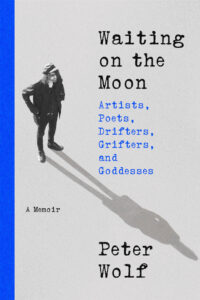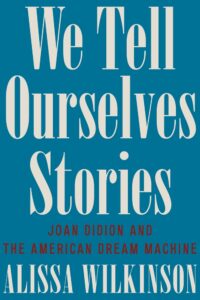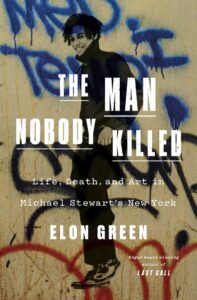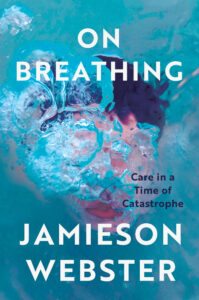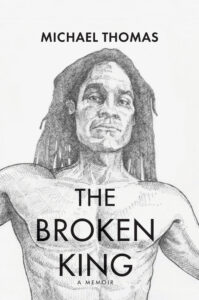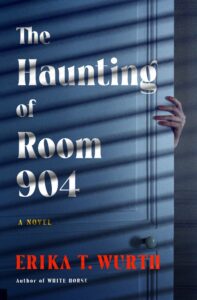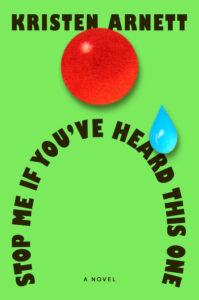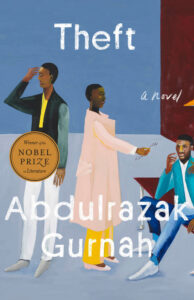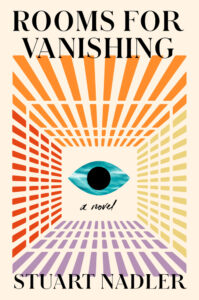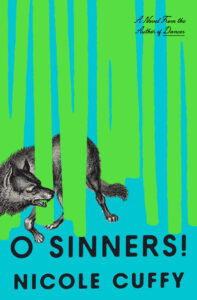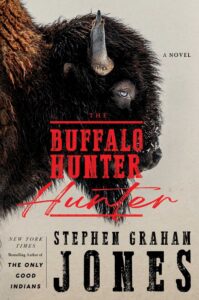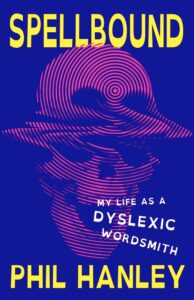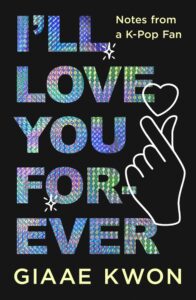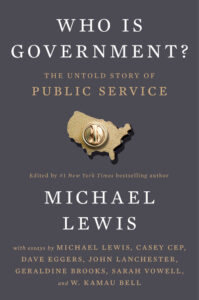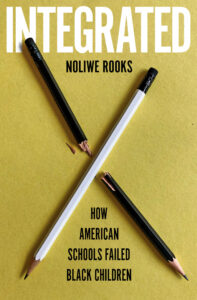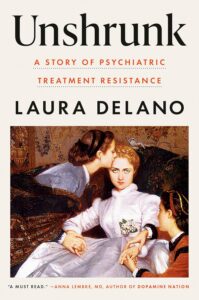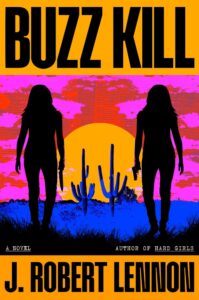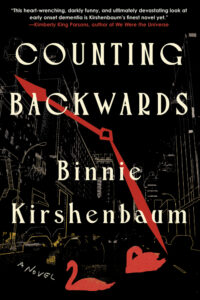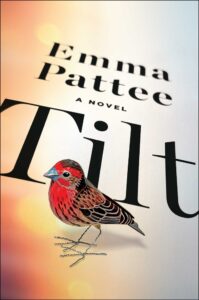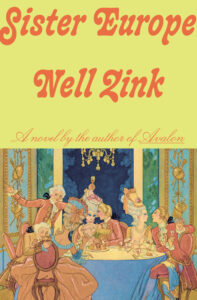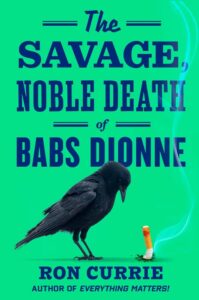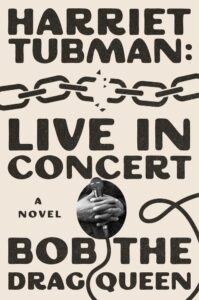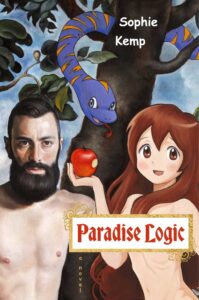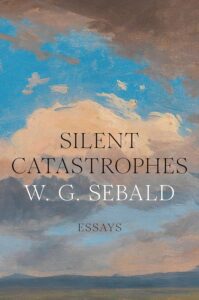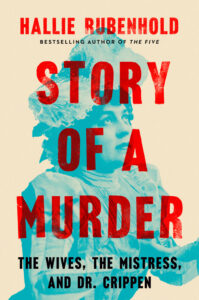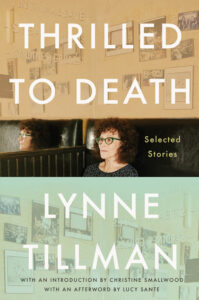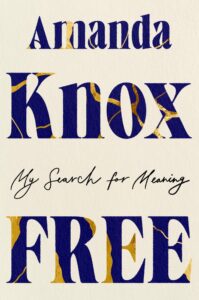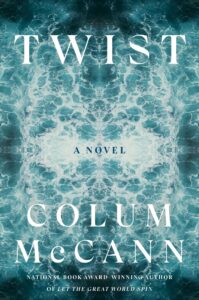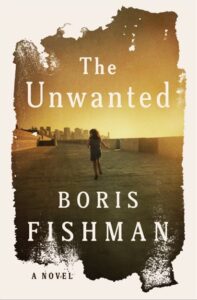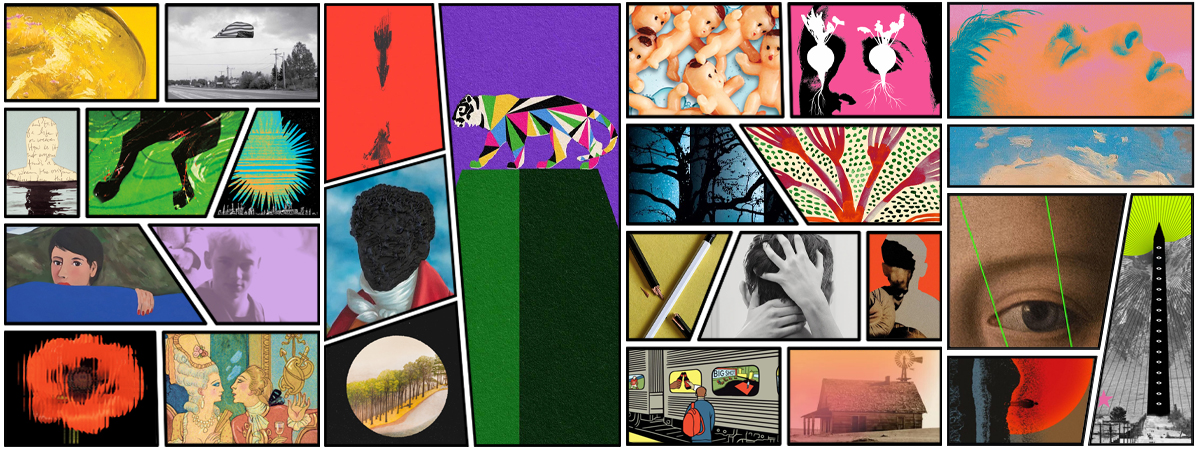
Lit Hub’s Most Anticipated Books of 2025
291 Books We're Looking Forward to in the New Year
MARCH
Natasha Brown, Universality
Random House, March 4
I adored Brown’s debut, Assembly, a breath of fresh, sharp air in a sea of safe novels, and am therefore very much looking forward to reading her follow-up, in which a young journalist tries to uncover the truth after a young man at a rave is beat half to death with a gold bar. Sounds like fun, but really I’d be interested in anything from this writer, who has an uncommon way of thinking. –ET
Agustina Bazterrica, tr. Sarah Moses, The Unworthy
Scribner, March 4
If you read Tender is the Flesh, you’ve undoubtedly never forgotten it—Bazterrica is one of the most unsettling writers working today. Her latest involves a woman in a creepy convent as the world outside collapses into post-apocalyptic strife… and probably some pretty gnarly body horror, as well as searing social commentary. Gird your loins. –DB
Laila Lalami, The Dream Hotel
Pantheon, March 4
I’m always going to cheer when a literary fiction writer makes the jump to genre fiction (you’re all weirdos, I know you are, come play with us) and so I’m very excited for Lalami’s latest, which features a pre-crimes monitor-your-dreams near-future dystopia that sounds right out of Philip K Dick. I expect it will also feel a bit Kafka-esque in its assessment of our horrid present. –DB
Chimamanda Ngozi Adichie, Dream Count
Random House, March 4
Adichie’s first novel since 2013’s bestselling and garlanded Americanah concerns four women, spread between America and Nigeria in the contemporary (read: pandemic, read: sexual assault based on a 2011 crime) era; they are interconnected, but of course each saddled with their own struggles and ambitions. The book promises to be full of Adichie’s perceptive writing, and seeks, according to its publisher, to understand “the very nature of love itself.” Sure to be a big event. –ET
Ariel Dorfman, Allegro
Other Press, March 4
A historical mystery from the author of The Suicide Museum, in which Mozart tries to unpack the truth of Bach’s death. Sounds delightful. –ET
Reginald Dwayne Betts, Doggerel
Norton, March 4
As a lifelong dog person I am fascinated by Betts’s latest poetic project, which is billed as “a meditation on family, falling in love, friendship, and those who accompany us on our walk through life.” Yes, as the title would suggest, that would be dogs. Because what does it really mean to live with someone whose unconditional love is eternally tethered to complete and total dependence? Perhaps only poetry can answer that question. –JD
Sophie Strand, The Body is a Doorway
Running Press, March 4
Sophie Strand has been something of a literary-world secret—her Magdalene novel The Madonna Secret and her interrogation of mushrooms, myths, and masculinity The Flowering Wand are the kinds of books that get passed from one knowledgeable reader to another—but I think her memoir is going to blow her up in a big way. It’s perhaps her most personal work yet, a memoir of illness and presence, but it speaks to deeply resonant themes of health and wellness in America in particular. Start reading Strand now, so you can say you already knew her work when this book goes huge. –DB
Russell Shorto, Taking Manhattan: The Extraordinary Events That Created New York and Shaped America
Norton, March 4
Russell Shorto has written a number of books about New York City and its Dutch roots, and his newest investigates how the small colony became the metropolis we know today. If you’re the kind of person (like me) who can’t shut up about NYC, this will be worth checking out. Shorto paints New York’s founding as the first testing ground of what would come to define America: pluralism, capitalism, and a shaky commitment to its stated ideals. Taking Manhattan draws on newly translated documents that fill in details about the lives of enslaved Africans and dispossessed Native peoples, the individuals who were subjugated and thrust aside. This book looks to be unsparing in its honesty and assessment of New York, and of the country that grew around it. –JF
Vaclav Smil, How to Feed the World: The History and Future of Food
Viking, March 4
Smil, whose data-driven, no-nonsense approach to the world’s problems makes him enemy to techno-capitalist utopians and doom-fetishizing lefties alike, is now focusing his flinty realism on the world’s food systems. Namely, what accounts for the ongoing paradox of widespread food waste and endemic famine? And how do we fix it? –JD
Annie Ernaux, ed. Pierre-Louis Fort, tr. Sophie Lewis & Emma Ramadan, Writing, the Other Life: Writing, the Other Life
Seven Stories Press, March 4
A new anthology collects works by and about Ernaux, the recent Nobel laureate, mixing the author’s own work with critical accounts and a series of photographs and manuscript pages. For devoted Ernaux readers, as well as those just beginning to come to her work, this is an exciting collection. –DM
Alex Bollen, Motherdom: Breaking Free of Bad Science and Good Mother Myths
Verso, March 4
The specter of the Bad Mother looms over every bleary-eyed and terrified new mom. In this book, researcher and mother Alex Bollen digs into the real stories behind the nebulous studies and perceptions that shape societal notions about motherhood. She also proposes a new model of motherhood, “motherdom,” with which she aims to expand our conception of “good” child-rearing. I can think of countless people, mothers and not, in desperate need of this book. –JG
Ross Barkan, Fascism or Genocide: How a Decade of Political Disorder Broke American Politics
Verso, March 4
As I write this, it feels depressingly too soon to take stock of the 2024 presidential election: what it says about the last decade of American politics, and what, indeed, it means for the future of the world. However, if anyone were to do it, I’d take Barkan, whose deep reporting skills are matched by a knack for storytelling, and whose allergy to power is so sadly rare among journalists who can actually access it. –JD
Torrey Peters, Stag Dance: A Novel & Stories
Random House, March 11
A novel in addition to three novellas, Stag Dance offers numerous meaty entries for Torrey Peters’ fans to dig into. Peters was instrumental in spearheading a new wave of trans literary fiction: her novel Detransition, Baby was easily one of the best books I read in 2021, a trans narrative that looked at even that hot button issue of detransition with nuance and brevity. Stag Dance, the titular novel, is the story of a group of lumberjacks throwing a dance, and requiring that some of the men show up as women for the event. What ensues is a showdown of gender and transition and masculinity and expectation. With that as its central novel, along with the surrounding novellas, this release is sure to be strange, thoughtful, and entirely unique. –JH
Mariam Rahmani, Liquid: A Love Story
Algonquin, March 11
The unnamed narrator of this bright new novel is a “lowly adjunct” who accepts a friend’s challenge to secure a marriage proposal from a “rich Angeleno.” That’s a fun enough premise on its face, but in Mariam Rahmani’s careful hands, the marriage plot gets the erudite treatment.
Our hero’s nutty dates with prospective gold-givers are interspersed with sharp observations on post-colonial theory. And as she looks for love in all the wrong places while attempting to extend “Said’s genealogy into the contemporary,” an expansive critique of the American dream emerges. Hip and wise and honest, this novel looks apt for Elif Batuman fans. –BA
Brian Castleberry, The Californians
Mariner, March 11
A sprawling novel spanning 100 years of American history is catnip to me. The Californians follows three characters, living across generations, to tell a story of movies, ambition, art, money and the American West. I can’t wait to get entirely sucked in to its expansive world. –JG
Karen Russell, The Antidote
Knopf, March 11
At very long last, 14 years after her debut, MacArthur fellow Karen Russell is publishing a new novel: a fantastical Dust Bowl epic, which concerns “a ‘Prairie Witch,’ whose body serves as a bank vault for peoples’ memories and secrets; a Polish wheat farmer who learns how quickly a hoarded blessing can become a curse; his orphan niece, a basketball star and witch’s apprentice in furious flight from her grief; a voluble scarecrow; and a New Deal photographer whose time-traveling camera threatens to reveal both the town’s secrets and its fate.” Yes, yes, yes. Cannot wait. Also dibs on “Voluble Scarecrow” for my next band name. –ET
Silvia Park, Luminous
Simon & Schuster, March 11
A United Korea in the nearish future is the setting for Silvia Park’s deeply human take on artificial life. The estranged children of a robotics pioneer are reunited by the search for a missing, and rare, robot unit, one who may lead them to their sorely missed, and entirely artificial, brother. –MO
Ben Okri, Madame Sosostris and the Festival for the Brokenhearted
Other Press, March 11
This latest from the Booker-winning polymath Ben Okri begins when Viv, a well-heeled British woman, plots a festival for “people who have been smashed up by love.” Things start to go hinky when she engages Madame Sosostris, the famed fortune-teller from T.S. Eliot’s The Waste Land, to headline her soiree.
Okri’s also a playwright, and the dialogue here grants a shimmery surface to the allegorical underpinning. It helps, too, that the novel’s conundrum couldn’t be realer: Can we ever avoid unhappiness? This beautifully written book is riveting in its attempt to answer that question, from first page to last. –BA
Tove Ditlevsen, tr. Rennifer Russell and Sophia Hersi Smith, ed. Olga Ravn, There Lives a Young Girl in Me Who Will Not Die
FSG, March 11
We were all mesmerized by Tove Ditlevsen’s short novel-like-memoirs, Copenhagen Trilogy, that came out in early 2021. Now we get a volume of selected poetry written throughout her life. Prepare for the same “wry nihilism, quiet intensity, dark humor, and crystalline genius” that made her memoirs utterly absorbing. –EF
Naseer Aruri & Edmund Ghareeb, eds., Enemy of the Sun: Poetry of Palestinian Resistance
Seven Stories Press, March 11
We often turn to poetry in times of great suffering, eras of incomprehensible evil and injustice, to try and make sense of a world that seems irreparably broken. So much of modern Palestinian existence has been characterized by great suffering and injustice. What’s true in 2024 was also true in 1970, when this collection was first released. Originally published by Drum & Spear, the publishing arm of the Student Nonviolent Coordinating Committee, Enemy of the Sun: Poetry of Palestinian Resistance links twelve poets “working in a poetics of refusal and of hope. Bearing witness to decades of Zionist occupation, to a diaspora exiled in refugee camps and writers held captive in Israeli jails.” –DS
Helen Garner, How to End a Story: Collected Diaries, 1978-1998
Pantheon, March 11
If you haven’t ready Helen Garner yet, you have a lot to catch up on. Her first novel, Monkey Grip, was published in 1977, which catapulted her to fame in Australia. Since then she’s published novels, stories, screenplays, and nonfiction, including The First Stone (1995), about a principal who is accused of groping two students, and This House of Grief (2014), which tells the story of Robert Farquharson, on trial for the murder of his three sons. Her collected diaries are “fastidiously kept, intricately written, and delightfully dishy”; an exploration of bohemian Melbourne that bears witness to one of the world’s great writers hard at work. –EF
Scaachi Koul, Sucker Punch
St. Martin’s Press, March 11
Scaachi Koul is so incredibly funny. She runs one of the few newsletters that consistently makes me laugh and writes pop culture essays that are both thoughtful and hilarious. Obviously, I’m very excited for Sucker Punch, Koul’s newest essay collection. The book charts a time in her life when Koul got divorced, lost her job, and found out her mother had cancer. Dark as these topics may seem, I trust Koul to deliver essays that are biting and honest and deliciously readable. –MC
Padraic X. Scanlan, Rot: An Imperial History of the Irish Famine
Basic Books, March 11
Padraic X. Scanlan’s Rot is not just a history of a historical disaster—it is a prescient warning about the soon-to-come privations of climate change, and the spread of contagion (in this case, the blight, now endemic to Irish soil) that comes with an interconnected capitalist world. It’s also a referendum on the harsh, and now resurgent, Malthusian logic which turned the failure of a crop into the genocide of a people. –MO
Ali Watkins, The Next One Is for You: A True Story of Guns, Country, and the IRA’s Secret American Army
Little, Brown, March 11
With the success of Netflx’s adaptation of Patrick Radden Keefe’s incredible Say Nothing, the Irish Republican Army is, indeed, having its glamor moment. And as anyone who’s ever spent time in an American city on St. Patrick’s Day will tell you, the Yanks love them a tale of bold Fenian bravery. Enter Pulitzer Prize-winning reporter Ali Watkins, who tells the story of the Philadelphia Five “a small, ragtag band of carpenters, family men, and fugitives in the United States” who managed to smuggle all manner of weapon to the Belfast Brigade of the IRA at the height of The Troubles. Billed as a gripping nonfiction thriller. –JD
Peter Wolf, Waiting on the Moon: Artists, Poets, Drifters, Grifters, and Goddesses
Little, Brown, March 11
The rock legend (former singer for The J. Geils Band, former husband to Faye Dunaway) shares moments from a life well-lived. Rock memoirs can sometimes be one-note, but Wolf has a breadth of experience that makes for a joyous and delightful read. He studied as a painter, he sang with Aretha Franklin, he knew everybody from Alfred Hitchcock to Eleanor Roosevelt—and he has the stories to back it up. –DB
Alissa Wilkinson, We Tell Ourselves Stories: Joan Didion and the American Dream Machine
Liveright, March 11
In many ways, the myth of Joan Didion—the writer’s writer—has far outstripped the reality of the writer herself; she has come to represent the kind of superficial shorthand (in her case for detached elegance and lyric erudition) she so often decried in her writing. Using the oft-quoted “we tell ourselves stories in order to live” as a way in, New York Times film critic Alissa Wilkinson examines the contradictions at the heart of Didion’s life and work, chief among them her simultaneous criticism of, and reliance on, Hollywood’s voracious mythmaking factory. –JD
Elon Green, The Man Nobody Killed: Life, Death, and Art in Michael Stewart’s New York
Celadon, March 11
Elon Green is a sensitive chronicler of the suffering of New Yorkers and their attempts to seek justice from an imperfect, and often actively corrupt, system, and his new book is no exception. The Man Nobody Killed explores the artistic underground of 1980s NYC at a shocking moment in which one of their own—a Black graffiti artist who ran in the same circles as Basquiat and Madonna—was brutally murdered by police while out tagging. The crime was immediately recognizable to the community as racially motivated, sparking a sea of protest against police violence and radicalizing many of the witnesses to the brutal attack. –MO
Jamieson Webster, On Breathing: Care in a Time of Catastrophe
Catapult, March 11
The renowned psychoanalyst Jamieson Webster brings us a penetrating study of the act and meaning of breathing, one of life’s fundamental activities, but one whose broader significance is so easily taken for granted. Webster brings vast insight and empathy to any and all topics. –DM
Michael Thomas, The Broken King
Grove Press, March 11
It’s been a minute (eighteen years’ worth of minutes, in fact) since Michael Thomas burst onto the literary scene with his stunning debut novel Man Gone Down (which won the International Dublin Literary Award back in 2009). Our long wait for his follow-up is finally over with the news that The Broken King—a “deeply personal memoir of race, trauma, alcoholism, parenting, mental illness and ultimately hope in a portrait of three generations of Black American men”— is hitting shelves this spring. –DS
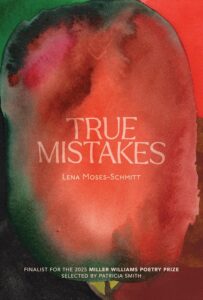
Lena Moses-Schmitt, True Mistakes
University of Arkansas Press, March 14
This striking, bruising cover sets the tone for a gorgeous, intricate, meandering and musical book of poetry by Lena Moses-Schmitt. A longtime publicist for Catapult, Moses-Schmitt has created a voice and style of her own—a steady stream of memoir-in-sketches, as well as honed and lovely poems, have been pouring out of her for years, but this is the first complete collection of hers to be published. Moses-Schmitt muses on life in all its simplicity and entangledness, wonders at it, marvels at it, and manages to make the mundane something majestic. She’s one to watch in any medium. –JH
Yuko Tsushima, tr. Lisa Hofmann-Kuroda, Wildcat Dome
FSG, March 18
This final novel from the late legend Yuko Tsushima is an epic set in post-war Japan. Following two estranged childhood friends who reconnect in the aftermath of the Fukushima nuclear explosion, this novel deals in secrets and suppressed memories, and considers the half-life of multivalent catastrophes. A last gift from the author of Territory of Light. –BA
Erika T. Wurth, The Haunting of Room 904
Flatiron, March 18
Erika T. Wurth, who wrote 2022’s splendid White Horse, is back with a wonderful, wholly inventive new horror novel, about a young woman who (following the death of her clairvoyant sister), finds herself able to commune with spirits—and is called to investigate a phenomenon in a Denver Hotel, where, every few years, a girl is found dead in the same hotel room, no matter what room she checked into. (I love this premise.) What follows is a simmering, sinister, and transportive journey through a kaleidoscopic, metaphysical and memorial world. –OR
Marcy Dermansky, Hot Air
Knopf, March 18
From the author of Hurricane Girl comes this happily madcap, devour-me-in-a-single-sitting story of “lust and money, and lust for money.” When Joanie’s old summer camp crush, now a billionaire, literally crash-lands his hot air balloon into her sub-par first date, she takes the ride–but doesn’t have to buy the ticket. (At least not at first.) If this one’s anything like Dermansky’s previous books, we can expect uproarious laughs amidst the smart social observations. –BA
Kristen Arnett, Stop Me If You’ve Heard This One
Riverhead, March 18
Kristen Arnett wrote a clown book? Kristen Arnett wrote a clown book. KRISTEN ARNETT WROTE A CLOWN BOOK! I don’t know what else you need to know. It’s going to be hilarious and gutting and delightful. –DB
Abdulrazak Gurnah, Theft
Riverhead, March 18
His first novel *after* winning the Nobel Prize for Literature, Gurnah’s Theft tells the story of three people thrown together by circumstance in modern Tanzania who must grapple with the complications—and deprivations—of a globalized world that so often treats individual lives as disposable commodities. –JD
Stuart Nadler, Rooms for Vanishing
Dutton, March 18
I’m beyond intrigued by the premise of this latest novel from 5 Under 35 honoree and author of The Inseparables Stuart Nadler. In Rooms for Vanishing, the trauma of World War II has fractured the Austrian Jewish Alterman family so that each moves through the ensuing decades alone, certain that they are the only surviving member of the family. It sounds like an epic puzzle box of a novel, exploring the profoundly destabilizing power of grief and loss. –DS
Nicole Cuffy, O Sinners!
One World, March 18
While there have been quite a few novels approaching the subject of cult indoctrination lately, Nicole Cuffy’s literary marvel stands head and shoulders above the rest. A journalist mourning the loss of his father takes a working vacation to California to interview the annoyingly attractive members of a mysterious cult that may or may not be its own religion. Meanwhile, flashbacks to the Vietnam War recount the cult’s origins. I’ll have to read this one slowly, for the language deserves to be savored and the philosophical underpinnings take some time to absorb. –MO
Stephen Graham Jones, The Buffalo Hunter Hunter
S&S/Saga Press, March 18
Sit up, everyone: Stephen Graham Jones has a new novel! It’s about the discovery of a diary written by a white Lutheran pastor in 1912—a diary which chronicles, over several visits, an interview with a Blackfeet vampire named Good Stab in which he explains his lifelong quest for revenge. –OR
Phil Hanley, Spellbound
Henry Holt, March 18
I don’t think dyslexia gets the attention it deserves, in terms of research or societal understanding—and that means it definitely isn’t showing up in our narratives. So I’m particularly excited for comedian Phil Hanley’s memoir about living with dyslexia from childhood and becoming a renowned performer despite it. There are a lot of people out there who could use more patience from the world as regards the ways in which their brains process information differently—here’s hoping Hanley helps draw some positive attention to the dyslexics. –DB
Giaae Kwon, I’ll Love You Forever: Notes from a K-Pop Fan
Henry Holt, March 18
I’ve been a fan of Kwon’s work since I read this essay in 2021 and I’m so excited for her first book! Admittedly I’m not particularly plugged into K-Pop culture, but it’s something I’m always interested to learn more about, and this book seems like a great resource to learn more about K-Pop whether you’re a seasoned fan or a newbie. Kwon writes so sincerely and vulnerably about pop culture, and I can’t wait to see what she brings to this subject. –MC
Michael Lewis, Who Is Government?: The Untold Story of Public Service
Riverhead, March 18
Lewis has recently graduated from coverage of already-huge news stories—the 2008 financial crash, the Coronavirus pandemic, the Oakland A’s being slightly less bad than usual—to covering news as it breaks, as with 2023’s Going Infinite when the book’s release coincided with the trial of its subject, convicted cryptocurrency fraudster Sam Bankman-Fried. If we expect this trend to continue, then this forthcoming collection Lewis is editing indicates that the most important subject of 2025 will be the role of the civil servant in US bureaucracy. Early signs indicate Lewis has done it again. –Calvin Kasulke, Associate Publisher
Noliwe Rooks, Integrated: How American Schools Failed Black Children
Pantheon, March 18
Brown v. Board of Education determined that racial segregation in schools was unconstitutional and was heralded as a massive victory for civil rights. But, as Rooks explains, “schools in predominantly Black neighborhoods were shuttered, lost funding, Black educators were fired, and Black children faced discrimination and violence from their white peers.” The nation’s history plays out in Rooks’ own experience with education: Rooks’ grandparents attended school during segregation, her father was one of the first students integrated into white classrooms, Rooks herself attended an underserved inner-city school, yet her son still struggles with hostility and prejudice from white teachers and students alike. Rooks questions why the story of integration is only told one way, and unpacks the ways in which the implementation of integration has done much of the Black community a disservice. –EF
Laura Delano, Unshrunk
Viking, March 18
A radical look at the mental health industry and its overwillingness to pathologize and medicate: Unshrunk promises candor and rage in lieu of therapy-speak, questioning the ease with which diagnoses and their life-altering paths are handed out to clients seeking psychological help. Laura Delano delivers a heart-rending and deeply inquisitive memoir about her psychiatric journey: the times spent in treatment centers, the vast array of pills she’s been on, the slew of diagnoses she’s been handed, and the crushing realization that she became worse off from these interventions than she’d been at the outset. What ensued was the complete disavowal of medication and psychiatry; Delano bravely reports from the other side of her decision, from an earned, embodied perspective. Delano has chosen the raw, often painful, always worth it experience of being human, and offers experience and research to readers who are curious to do the same. –JH
J. Robert Lennon, Buzz Kill
Mulholland, March 18
Whatever Lennon writes it is A) never boring B) funny. So obviously I am intrigued by the promise of his latest, a plot-rich ensemble piece featuring synthetic street drugs, disastrous deep fakes, neophyte PI’s, a “cult-like billionaire” named Travis Nutt, and much, much more. (I repeat: Travis. Nutt.) –JD
Binnie Kirshenbaum, Counting Backwards
Soho Press, March 25
Binnie Kirshenbaum novels are sharp, harrowing, and disarmingly funny at the rawest of moments. In her new novel, Addie, an artist, must reckon with her husband Leo’s dementia and his terminal diagnosis of Lewy body dementia. In short, sometimes painful and sometimes funny vignettes, Kirshenbaum captures the most important details of their final years together as well as the moments they are forced to spend apart, as Leo’s descent into cognitive decline is punctured by violence which means he must be cared for elsewhere. A true love story ends with tears, and Counting Backwards is, if boiled down to one thing, surely that. –EF
Emma Pattee, Tilt
Marysue Rucci Books/S&S, March 25
Tilt is based upon the very real risk of a massive earthquake hitting the Pacific Northwest in the next 50 years. Kathryn Schulz wrote about this very danger in 2015 for the New Yorker, and Emma Pattee expands and fictionalizes upon this terrifying possibility with Tilt. The novel starts with the pregnant protagonist shopping in an IKEA when the earthquake strikes, and she must wade through the wreckage the earthquake has wrought as she attempts to make it home to her husband. All the while, we are with her as the terror of an unknown world descends upon her, and as she grapples with the future to which she is condemning her unborn child. While it may be hard to read, as climate disaster can hit upon a specifically frightening trigger point, Tilt promises wit and style, and reminders of humanity in the face of disaster. A force to be reckoned with. –JH
Nell Zink, Sister Europe
Knopf, March 25
Get in, losers! We’re getting a new Zink. One of my favorite working satirical social realists has taken her gimlet eye over the pond this time, to her adopted home in Germany. In previous novels, Zink’s chronicled highly American families—chosen and assigned—that try to bypass a natalist/nuclear/capitalist arrangement (Doxology, Mislaid). But Sister Europe assembles a motley crew of disconnected dinner party guests to explore a whole society’s hypocrisies. Unsparingly honest on the wealthy ex-pat and the professional artist, this novel feels like a big new swing from a thrilling stylist. –BA
Ron Currie, The Savage, Noble Death of Babs Dionne
Putnam, March 25
Ron Currie doing a big family crime novel seems like a ticket to a great time to me. It features a iron-willed Franco-American matriarch (the titular Babs) defending her territory (a small town in Maine) and her family from enemies foreign and domestic. I have the feeling it’s going to come together in a big messy blast, as all good crime denouements should do. –DB
Bob the Drag Queen, Harriet Tubman: Live in Concert
Gallery Books, March 25
Yes, it’s true: that Bob the Drag Queen wrote a novel and it is about Harriet Tubman coming back to life and making a hip-hop album. You already know you’re on board, as well you should be: the novel is funny and wild and sharp, about fame and race and creativity and America. Harriet’s is a show not to be missed. –DB
Sophie Kemp, Paradise Logic
Simon & Schuster, March 25
They say never judge a book by its cover, but I think this one might be giving us some hints about its contents. Extraordinarily odd, distinct and jarring, one needs to only crack the spine to get a sense of Sophie Kemp’s voice and style. Both earnest and yet feels like a book-long joke, the narrator lives to be “the greatest girlfriend of all time,” spending money and time and energy to craft herself into this specimen worthy of adoration, even joining a clinical trial to shape herself into said elusive concept. There’s something Miranda July-esque about the whole performance, a statement on whether these desires can exist divorced from the effects of a patriarchal society, and how to understand being a girl, a girlfriend, a woman who is attracted to men, under the circumstances we’ve been handed. Offbeat, hilarious, and often dismal, Paradise Logic is the excavation of heterosexual desire our age deserves. –JH
W.G. Sebald, tr. Jo Catling, Silent Catastrophes: Essays
Random House, March 25
The only question I have is why it took so long for this book—which compiles two books of essays by W.G. Sebald, The Description of Misfortune and Strange Homeland, published in Austria in 1985 and 1991—to reach us poor English speakers. The essays in question are deep-dives on some of the writers whose work meant the most to Sebald, including Bernhard, Kafka, and Roth, and no doubt will shed a fascinating light on the genre-bending novelist’s own works. –ET
Hallie Rubenhold, Story of a Murder: The Wives, the Mistress, and Dr. Crippen
Dutton, March 25
Hallie Rubenhold writes some of the most engaging nonfiction around; her works display an incredible mastery of the rhythms of the past and the quirks of history’s denizens. Here, she explores a shocking murder in turn-of-the-century New York’s glittering demimonde—when a popular chanteuse goes missing, suspicion quickly falls upon her doctor husband, whose reputation for quackery hides far more sinister intentions. –MO
Lynne Tillman, Thrilled to Death: New and Selected Stories
Soft Skull, March 25
Lynne Tillman, somehow, is still… underrated? Truly one of our great writers, I am absolutely thrilled that Soft Skull, with editorial oversight from Tillman herself, is publishing work from across her weird and brilliant career. –JD
Amanda Knox, Free: My Search for Meaning
Grand Central, March 25
Who isn’t curious? Amanda Knox has been a name we’ve known in infamy for fifteen years now, and the quest for answers remains unsated. Notoriously charged and imprisoned for the murder of her roommate, Knox has long held fast to her innocence: she’s written another memoir before, but this one is from the specific vantage point of what freedom and life can mean after having such a cataclysmic and devastating event occur. I know that I’ll be reading this title: whenever I’ve come across writing by Knox I’ve been blown away by her wisdom and nuance, struck by the fact of such an indomitable spirit through it all. Even if it’s from an unlikely guide, I’m ready to be convinced and inspired by Knox and her quest for meaning in the face of the most harrowing event one can live through. –JH
Colum McCann, Twist
Random House, March 25
McCann’s latest novel sends an Irish journalist to cover the internet cables embedded deep under the ocean, only to find himself mired in a very human web of desire and despair. –ET
Boris Fishman, The Unwanted
Harper Books, March 25
A small family must escape their unnamed, war-tattered country in Fishman’s latest novel, fearing for their lives. Lea Carpenter described the book as “urgently contemporary and prescient in equal measure,” and added that it “channels the spectrum of literature’s finest, emotionally visceral dystopian masterworks, from Dune to The Handmaid’s Tale, in a fable of survival, resistance and, ultimately, maternal love.” –ET









